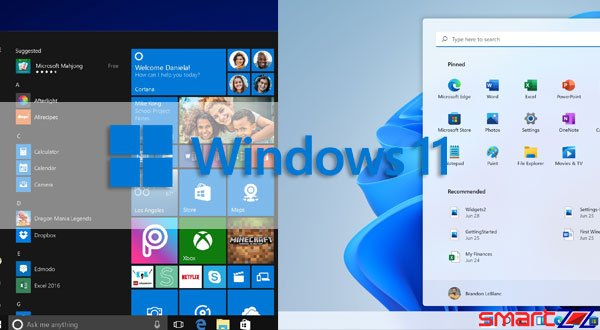Mobile Gaming Apps: Revolutionizing the Gaming Industry
In the last decade, mobile gaming apps have become a major force in the global gaming industry, transforming how games are developed, played, and enjoyed. With the advent of smartphones and tablets, gaming has moved from traditional consoles and PCs to the palm of our hands, enabling users to enjoy immersive experiences anywhere, anytime. If you're interested in exploring more mobile apps, you can also download the 1xBet app for gaming and sports betting, which offers an extensive range of features for users around the world. In this article, we will explore the rise of mobile gaming apps, the factors contributing to their success, and their impact on the future of gaming.
The Evolution of Mobile Gaming
Mobile gaming has come a long way from its early days. Initially, mobile games were simple, often limited to basic puzzles or games like "Snake" on early Nokia phones. These games were rudimentary in design and offered limited interaction. However, as smartphones evolved, so did the capabilities of mobile games. The introduction of powerful processors, high-resolution touchscreens, and high-speed internet connections paved the way for more sophisticated and engaging experiences.
Today’s mobile games range from puzzle games like Candy Crush to action-packed titles like PUBG Mobile and Fortnite. With advancements in augmented reality (AR), games like Pokémon GO have further pushed the boundaries of what mobile gaming can offer, allowing players to interact with the real world while enjoying virtual experiences.
Key Factors Behind the Popularity of Mobile Gaming Apps
-
Accessibility and Convenience
One of the most significant advantages of mobile gaming apps is their accessibility. Unlike consoles or PCs, which require a dedicated space and equipment, mobile games can be played anytime, anywhere. Whether you're waiting in line, commuting, or relaxing at home, your smartphone is always within reach, making it easy to indulge in gaming moments throughout the day. -
Free-to-Play Model and In-App Purchases
Many mobile games are free to download, which lowers the barrier for entry and attracts a wide range of players. This freemium model, where the game is free but players can make in-app purchases for cosmetic items or to speed up progression, has proven highly successful. Games like Clash of Clans and Candy Crush Saga have built massive player bases through this approach, generating revenue through microtransactions. -
Social Integration and Online Multiplayer
Mobile games often come with integrated social features, allowing players to connect with friends, share achievements, and compete on leaderboards. Multiplayer functionality has also seen significant improvements, with games like Among Us and Call of Duty: Mobile offering engaging online experiences that allow players to team up or compete against each other in real time. -
Diverse Game Genres and Appeal
Another factor contributing to the success of mobile gaming apps is the vast variety of genres available. Whether you enjoy casual puzzle games, strategy, role-playing, racing, or sports, there is a mobile game for everyone. This wide range of options ensures that mobile gaming can appeal to both casual gamers looking for quick entertainment and hardcore gamers seeking deeper, more immersive experiences.
The Impact on the Gaming Industry
Mobile gaming apps have had a significant impact on the gaming industry, challenging the dominance of traditional gaming platforms and reshaping the market in several ways.
-
Expansion of the Gaming Demographic
Mobile gaming has attracted a more diverse audience compared to traditional gaming platforms. While console and PC gaming have traditionally appealed to a younger, more male-dominated demographic, mobile gaming has opened up the market to older individuals and women. This has resulted in a broader, more inclusive gaming community. -
Indie Game Development
The accessibility of app stores like the Apple App Store and Google Play Store has empowered indie developers to create and publish their games without the need for a large budget or a major publisher. This democratization of game development has led to a surge in creative, innovative titles and has made it easier for smaller studios to gain recognition and success. -
New Revenue Streams
The rise of mobile gaming apps has introduced new revenue models for game developers. In addition to in-app purchases, advertisers are increasingly targeting mobile gamers through in-game ads. These ads, when implemented thoughtfully, provide developers with another source of revenue while keeping games free to play for users.
Challenges Facing Mobile Gaming Apps
While mobile gaming has seen tremendous growth, there are several challenges that the industry must address to maintain its upward trajectory.
-
Monetization and Player Retention
Balancing monetization strategies with player satisfaction can be tricky. While microtransactions can generate revenue, excessive in-app purchases or intrusive ads can alienate players. Developers need to find a balance that rewards players without detracting from the overall gaming experience. -
Hardware Limitations
While mobile devices have become significantly more powerful, they still have limitations compared to dedicated gaming consoles and PCs. Mobile games may not always be able to match the graphical fidelity or processing power of console games, which may deter hardcore gamers from embracing mobile gaming as their primary platform. -
Privacy and Security Concerns
With the increasing use of social features and online multiplayer modes, privacy and security have become critical concerns. Developers must ensure that player data is protected and that games comply with relevant data protection regulations.
The Future of Mobile Gaming
Looking ahead, mobile gaming apps will continue to evolve and shape the gaming landscape. Technologies like 5G, cloud gaming, and virtual reality (VR) are set to further enhance the mobile gaming experience. Cloud gaming services like Google Stadia and NVIDIA GeForce Now are already enabling gamers to play console-quality games on mobile devices, without the need for high-end hardware.
Moreover, the growing integration of augmented reality (AR) and virtual reality (VR) into mobile gaming will likely lead to even more immersive and interactive experiences. As smartphones continue to improve in terms of hardware and software, mobile gaming will remain a dominant force in the gaming industry.
Conclusion
Mobile gaming apps have undeniably revolutionized the gaming industry, offering unprecedented convenience, accessibility, and entertainment to a global audience. With a diverse range of genres, innovative gameplay mechanics, and the ability to connect with friends and players worldwide, mobile gaming has become a mainstream form of entertainment. As technology advances and the mobile gaming ecosystem continues to grow, we can expect even more exciting developments in the future, making gaming more accessible and enjoyable than ever before.
Share on:




